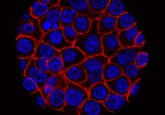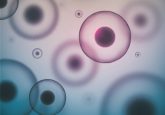New evidence may explain why pancreatic cancer patients do not respond well to chemotherapy

Researchers from The University of Texas MD Anderson Cancer Center (TX, USA) may have uncovered why chemotherapy drugs such as gemcitabine are not effective in many pancreatic cancer patients in a study that also points to novel treatment approaches. The findings were published recently in the journal Nature.
The study in mice indicated that administering gemcitabine while suppressing a process of cellular of plasticity termed epithelial-to-mesenchymal transition (EMT) may boost the drug’s effectiveness.
“Diagnosis of pancreatic cancer is associated with poor prognosis despite the availability of current therapies,” stated the study’s lead author Raghu Kalluri of MD Anderson. “Therefore new treatment strategies are urgently needed.”
The team were exploring EMT, a process that is thought to be hijacked by cancer cells in order to facilitate their migration to other organs. Research suggests that when cancer cells hijack EMT programs they stop proliferating, which impairs their sensitivity to chemotherapy.
“Gemcitabine works primarily on cancer cells that are dividing or proliferating,” said Kalluri. “When cancer cells suspend their proliferation — such as when they launch an EMT program — then anti-proliferation drugs like gemcitabine do not target them well.”
“We found that EMT program suppressed drug transporter and concentrative proteins, which inadvertently protected these cancer cells from anti-proliferative drugs such as gemcitabine,” added Kalluri. “The correlation of decreased survival of pancreatic cancer patients with an increased EMT program is likely due to their impaired capacity to respond to chemotherapy, leading to overall poor prognosis and higher incidence of metastasis.”
Inhibiting EMT appeared to improve the effect of gemcitabine on tumors.
“Collectively, our study offers the opportunity to evaluate the potential of targeting EMT program to enhance efficacy of chemotherapy and likely targeted therapies,” concluded Kalluri.
Source: The University of Texas MD Anderson Cancer Center press release




